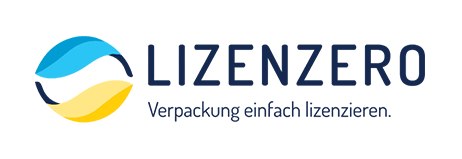VerpackG: What is shipping packaging?

Within the framework of the German Packaging Act (VerpackG), no company concerned can avoid dealing with the term and definition of so-called sales packaging. After all, it is the packaging that is the subject of the obligation to participate in the system as defined in the law, according to which the initial commercial distributors of the sales packaging in question are obliged to license it annually and thus ensure its recycling.
The term "sales packaging" is divided into three types of packaging: service packaging, product packaging and shipping packaging. How are the respective types of packaging characterized? Which material must be licensed? Are there any special features? In our series, we explain all three types of packaging – starting with shipping packaging.
Content
- What is a shipping packaging?
- What material is a shipping package made of?
- Special issues in Dropshipping & Fulfilment
- Why is it necessary to license packaging?
- Review: These are the obligations of the VerpackG
What is a shipping packaging?
A package that enables or supports the shipment of a product to the end user is called shipping packaging. This type of packaging serves as protection for the goods to ensure safe transport to the end customer.
In order to make the difference between shipping packaging and service packaging clear, the German Packaging Act clearly defines the subdivision: service packaging is handed over directly to the end user by the company (example: coffee-to-go cup or bread roll bag) – shipping packaging is in turn sent to the end user by the company.
Since the shipping packaging is disposed of by private households, it must be licensed for a fee by the initial distributor in a dual system.
The amount of the license fee to be paid depends on the volume and type of packaging put into circulation. With our calculation assistant, you can easily determine the amount of your fee:
What material is a shipping package made of?
All materials that a company uses to send the goods to the end user and which are therefore also generated as waste by the end user, count as shipping packaging. Primarily, therefore, they are shipping cartons, folding boxes and shipping bags made of a wide variety of materials.
In addition to the outer packaging, all shock-absorbing filling materials also count as shipping packaging requiring a license. This includes, for example, bubble wrap and polystyrene parts for cushioning the packages.
Furthermore, adhesive tape or other packaging materials are often used to securely seal the shipping packaging. Such materials are also included in the shipping packaging.
The following therefore applies: all packaging and filling materials used for shipping end up as waste with the private end user and are therefore subject to system participation (an overview of the obligations can be found below in review).

Special issues in Dropshipping & Fulfilment
In general, a company that transports its goods to the end user using shipping packaging – i.e. "puts them into circulation for the first time" according to the VerpackG – must comply with the VerpackG obligations for these. By filling the packaging with the goods for the first time, it bears the product responsibility for them and must therefore ensure that the materials are taken back and recycled.
In the most common basic constellation, the sale via the own online store, it is usually as described above: The retailer fills the goods into the shipping packaging after the end user has placed the order and ships them. He is therefore the first distributor and thus obliged to fulfil the VerpackG obligations for all materials belonging to the shipping packaging.
However, if the goods are shipped via a shipping service provider or the producer directly, there are separate regulations (Note: Some of the following regulations have changed within the framework of the German Packaging Act Amendment 2021):
Prior regulation: If a company uses the fulfilment option, the goods are sent by a shipping service provider. Since the fulfilment service provider is the one who fills the shipping packaging and puts it into circulation, it must also fulfil the obligations of the VerpackG for the shipping packaging concerned.
Exception: If the company is only recognizable as the seller on the shipping packaging, it bears the obligations of the VerpackG for this packaging. However, if the shipping service provider is recognizable on the packaging alone, together with the company or neither of them, the company is exempt from the obligations for the shipping packaging.

New regulation: The requirements of the German Packaging Act Amendment, which came into force on 3 July 2021, change the responsibility for packaging licensing in fulfilment. After a one-year transitional period, fulfilment service providers will no longer be obliged to license shipping packaging put into circulation from 1 July 2022. The obligation to license the shipping packaging will then lie with the commissioning retailers. The retailers must also prove to their fulfilment service provider that they have fulfilled their legal licensing obligations. Find more information on the changes of the amendment for online retailers in our blog post.

If the goods are shipped in dropshipping directly from the manufacturer or wholesaler to the private customer, the seller of the goods has no physical contact with the shipping packaging and is therefore also exempt from the obligations of the VerpackG. However, the above-mentioned exception also applies here.
Why is it necessary to license packaging?
Due to the growing online business and the increasing demand for convenience products, packaging waste in Germany is increasing every year. In order to make companies more accountable for this produced packaging waste (goal 1) and to promote the recycling economy (goal 2), the German Packaging Act was passed in 2019.
In order to guarantee both goals, the law introduced the Central Agency Packaging Register, a monitoring body to check the companies that are obliged to participate in the system, and at the same time significantly increased the recycling quotas. For example, the recycling rate for cardboard, paper and board is to increase to 90% by 2022 from the current 85%. System participation is the prerequisite for meeting these quotas: The dual systems can then ensure that the packaging waste is collected, sorted and recycled professionally. In this way, the companies placing packaging on the market finance the disposal and recycling process of their packaging with their license fee.
Review: These are the obligations of the VerpackG
Since January 2019, all initial commercial distributors of sales packaging must fully comply with the following obligations in order to avoid sanctions such as high fines and sales bans:
- Registration: Companies are obliged to register with the Central Agency Packaging Register in the publicly accessible LUCID packaging register. In order to guarantee a smooth registration, we have prepared an instruction-video and a LUCID manual for this:
- Licensing: Subsequently, companies must participate in a dual system such as Interseroh+ – simply possible via Lizenzero – and license their packaging volumes by concluding a licensing contract. The registration number received after successful LUCID registration must be deposited with the dual system.
- Data reporting: Finally, the licensed packaging volumes and the name of the dual system are recorded in the LUCID account. The data reporting is a continuous duty, which aims to ensure that both places – dual system and LUCID – always have exactly the same data records. Since these are regularly compared with each other, it is recommended that changes are always made identically in both places.
Tip: Our volume reporting tool, the volume download for LUCID, is an excellent help here.



